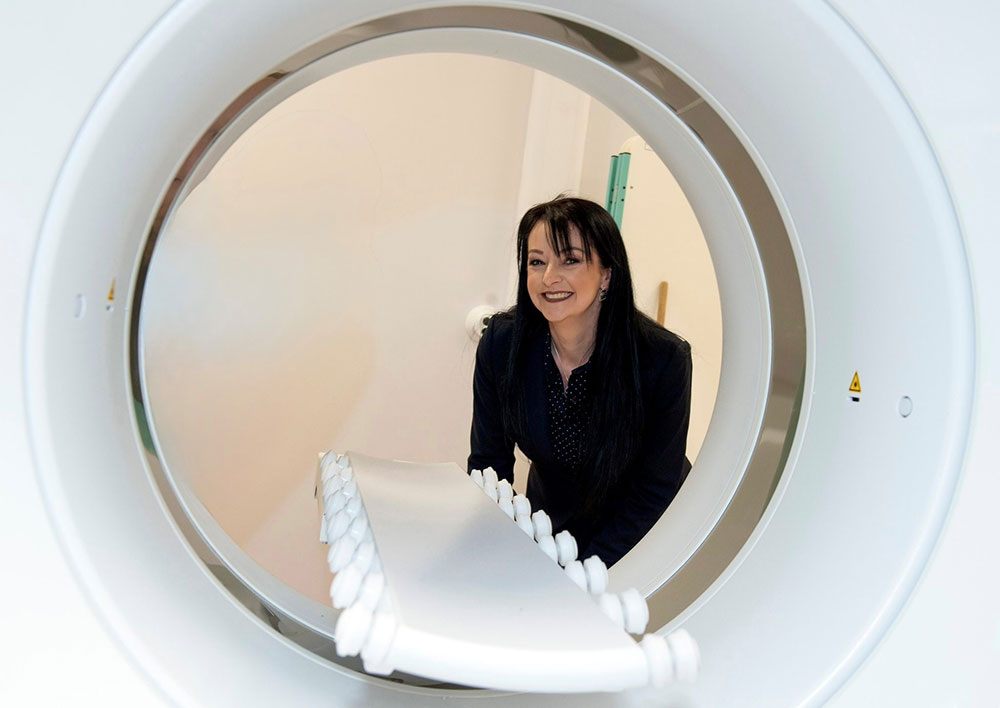Inspiring the next generation of scientists
We recently caught up with a fantastic role model and Chief Scientific Officer for Scotland, Catherine Ross.
She has had an incredible career to date, and in her current role she is transforming the delivery of healthcare science, making major impacts as a scientific leader in the UK and Europe.
To name just a few of her incredible achievements:
Catherine is a Chartered Scientist, Chartered Biologist and a Fellow of the Royal Society of Biology, the National Institute of Prevention and Cardiovascular Health in Ireland, and the European Society of Cardiology.
She has also been awarded Hononary Fellowships of the Physiological Society and the Royal College of Pathologist.
Catherine has held a number of senior leadership positions and is currently the President of the Science Council.
She is also a keen STEM ambassador, and has played a key role with Girlguiding and supporting local communities with science activities for families.
In recognition of all of her amazing work, Catherine recently won WISE’s Outstanding Woman in Science Award.

What made you pursue a career in science?
I cannot think of a time when I didn’t love the intrigue and logic of science.
I have been an avid reader throughout my life, and as a young child, I spent a lot of time in the library with my parents. The librarians were always introducing me to new books in the science section.
I very much enjoyed science at grammar school, and it was a natural progression to pursue a career in something I enjoyed so much.
I have always been fascinated by how the human body works – intricate organs and invisible chemical signals which collaboratively make us who we are.
That deep curiosity, coupled with the opportunity to make a difference to the lives of people, drew me to a career in healthcare science.
I knew I wanted to be part of something that wasn’t just about understanding illness but about improving lives on a daily basis.
What is your favourite thing about working in science?
I spent a significant proportion of my career working as a Healthcare Scientist in the NHS, where I specialised in non-invasive cardiac imaging, specifically cardiac ultrasound.
I enjoyed being able to combine my passion for science with working in a clinical role and being part of improving patient outcomes.
I have also held a number of voluntary/elected leadership roles, both nationally and internationally, which enabled me to support the progression of my profession as well as the development of other scientists, particularly women.
In my current role, I’m privileged to be the Head of Profession for the scientific workforce in NHS Scotland.
I have the opportunity at a national level to develop the capacity and capability of the workforce to ensure the delivery of high-quality and safe clinical services to improve patient outcomes and the overall health of the population in Scotland.
Scotland has a rich history of scientific medical innovation, and being in a position where I can help drive progress—ensuring that policy and clinical practice align to serve the public—is both an honour and a responsibility that I take very seriously.
Science has always been my passion, but using it to make a tangible difference in people’s lives is what makes this role truly special.
How did it feel to win the Outstanding Woman in Science award?
I was truly surprised and deeply honoured to be nominated.
I know how much time and effort goes into writing a nomination, and the fact that someone considered my activity worthy enough to invest that time means so much to me.
Winning the award was an absolute shock—the calibre of entries was exceptional, and I was genuinely amazed that the judges felt that the impact of my work warranted awarding me the Outstanding Woman in Science award.
What advice do you have for other women who want to pursue a career in science?
My advice is to be authentic and believe in your abilities. Science thrives on diverse perspectives, and all experiences, insights, and ways of thinking are valuable.
Never feel that you have to change who you are to fit in—bring your true self to the table and let your passion and curiosity drive you forward.
Seek out mentors and supportive networks, but also be that support for others. Lift up your peers, celebrate their successes, and create an environment where more women feel empowered to pursue a career in science.
There will be challenges, but staying confident, resilient, and true to yourself will help you navigate them.
Catherine’s remarkable achievements and unwavering commitment to improving healthcare science make her an excellent role model for aspiring scientists everywhere.
As she continues to inspire the next generation, Catherine’s story highlights the powerful women who are making significant contributions to the scientific community and paving the way for future generations.
WISE is committed to supporting the curiosity and resilience of girls and women in our mission to achieve gender parity in STEM.
